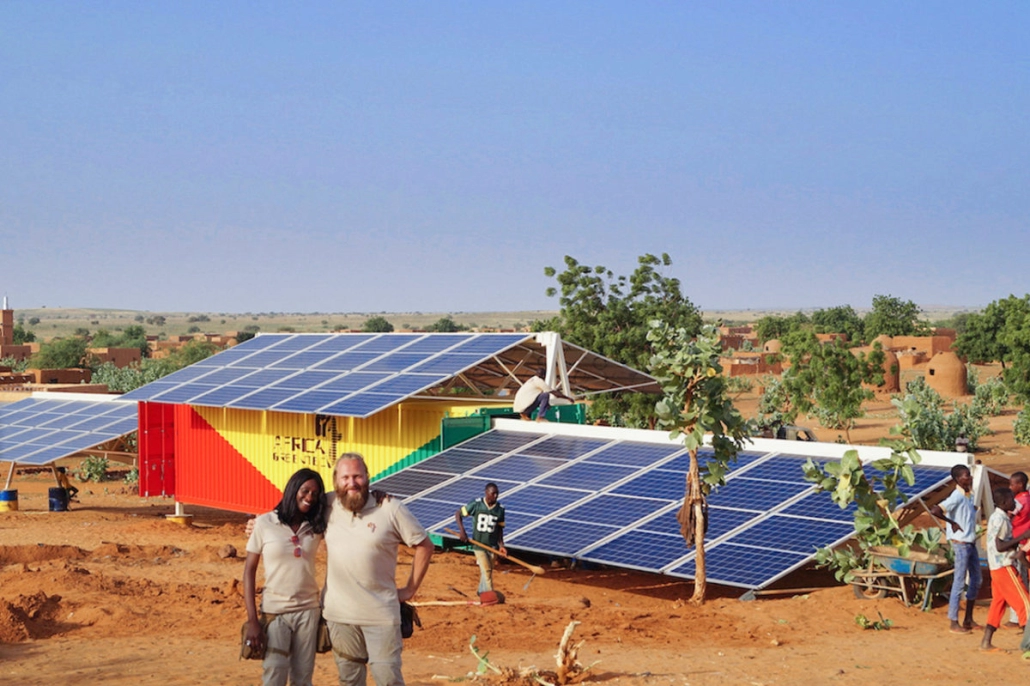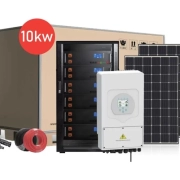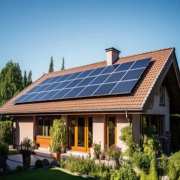How do hybrid solar systems support business energy?
Hybrid solar systems combine solar panels, battery storage, and grid connection to create a flexible energy ecosystem. For businesses, this means getting uninterrupted power during blackouts, reducing reliance on volatile electricity prices, and effectively responding to energy market fluctuations. Unlike traditional solar installations that feed excess power back to the grid, hybrid systems store surplus power in batteries for later use, ensuring continuous operations even when the sun is not shining. As energy demand continues to grow, more and more companies are turning to hybrid solar systems to power their operations, ensuring access to flexible and sustainable energy solutions.
Hybrid solar systems can help businesses reduce operating costs
Hybrid solar systems can help reduce operating costs by minimizing reliance on grid power, often subject to price fluctuations. During peak hours, commercial operations rely heavily on electricity, and hybrid systems supply solar energy directly and use battery storage when grid prices are high, resulting in significant cost savings. In addition, many businesses benefit from incentives, tax breaks, or rebates for renewable energy investments. Over time, governments will see an increasing return on investment in hybrid systems, making them environmentally responsible and economically wise. Combined with proper energy usage monitoring, businesses can make data-driven decisions that can further reduce costs.

Hybrid solar systems enable energy independence in remote areas.
Hybrid solar systems offer a self-sufficient energy solution for businesses operating off-grid or in areas with limited infrastructure. They are also used in mines, agricultural operations, and eco-resorts in remote areas to replace expensive diesel generators. Solar panels power daytime operations while batteries provide power at night, significantly reducing fuel costs and carbon emissions.
Real-world impact:
A safari lodge in Kenya has reduced diesel usage by 90% by adopting a hybrid solar system. The lodge now runs entirely on solar and battery power, saving tens of thousands of dollars in fuel costs each year while reducing noise pollution and carbon footprint. Similarly, telecom towers in rural India use hybrid solar systems to ensure 24/7 connectivity without relying on unstable grid power.

Supporting business continuity through energy resilience
Unpredictable power outages and energy instability can severely disrupt business operations, leading to lost productivity, missed deadlines, and data loss. Hybrid solar systems provide backup power with integrated battery storage, ensuring smooth operations even when the grid is down. In areas where grid reliability is questionable or extreme weather events are frequent, these hybrid solar systems play a vital role in business resilience. Hybrid systems automatically switch to battery or generator mode to keep critical functions such as lighting, server operation, cooling, or production lines running without interruption. This resilience is essential for healthcare, retail, or logistics businesses, where downtime can be costly or dangerous.
Sustainability Alignment to Meet ESG Goals
Nowadays, many companies have sustainability goals, and many investors and consumers are eager to achieve them. The hybrid solar system can help companies reduce scope two emissions while promoting renewable energy. A typical medium-sized hybrid solar installation can offset 100-300 tons of CO2 annually, equivalent to planting 2,500 trees.
Some European cosmetics manufacturers have achieved carbon neutrality by combining a hybrid solar system with energy-saving machinery. It reduced the grid electricity consumption of its factories by 75% and obtained “Green Business” certification, which has increased brand loyalty among environmentally friendly consumers. Hybrid solar systems can also ensure that corporate operations can cope with increasingly stringent emissions regulations worldwide in the future.

Scalability and flexibility for business growth
One of the most significant advantages of a hybrid solar system is its modular design. Businesses can start small—powering a single facility—and expand capacity as they grow. Additional solar panels, batteries, and wind turbines can be seamlessly integrated, avoiding costly replacements. Hybrid solar installations also offer flexibility in how they are used. For example, energy stored during off-peak hours can be used during high-demand hours, ensuring optimal efficiency. The ability to fine-tune energy consumption with a hybrid system is a significant advantage for seasonal businesses or operations with irregular hours.
A warehouse in Florida initially used a 100-kW hybrid system for lighting and HVAC systems. As the business expanded to include electric forklifts and electric vehicle charging stations, they tripled their battery storage and added a solar carport. This scalability ensures that the energy infrastructure can grow as business needs evolve without disrupting operations.
Meeting business energy needs
<p><p><p><p><p><p><p>&lt;p>Hybrid solar systems change how businesses use energy, combining solar generation, smart energy storage, and grid connectivity to deliver resiliency, savings, and sustainability. Whether it’s powering a remote mine or cutting utility bills for a factory, hybrid technology proves that clean energy is environmentally friendly and a competitive advantage.





